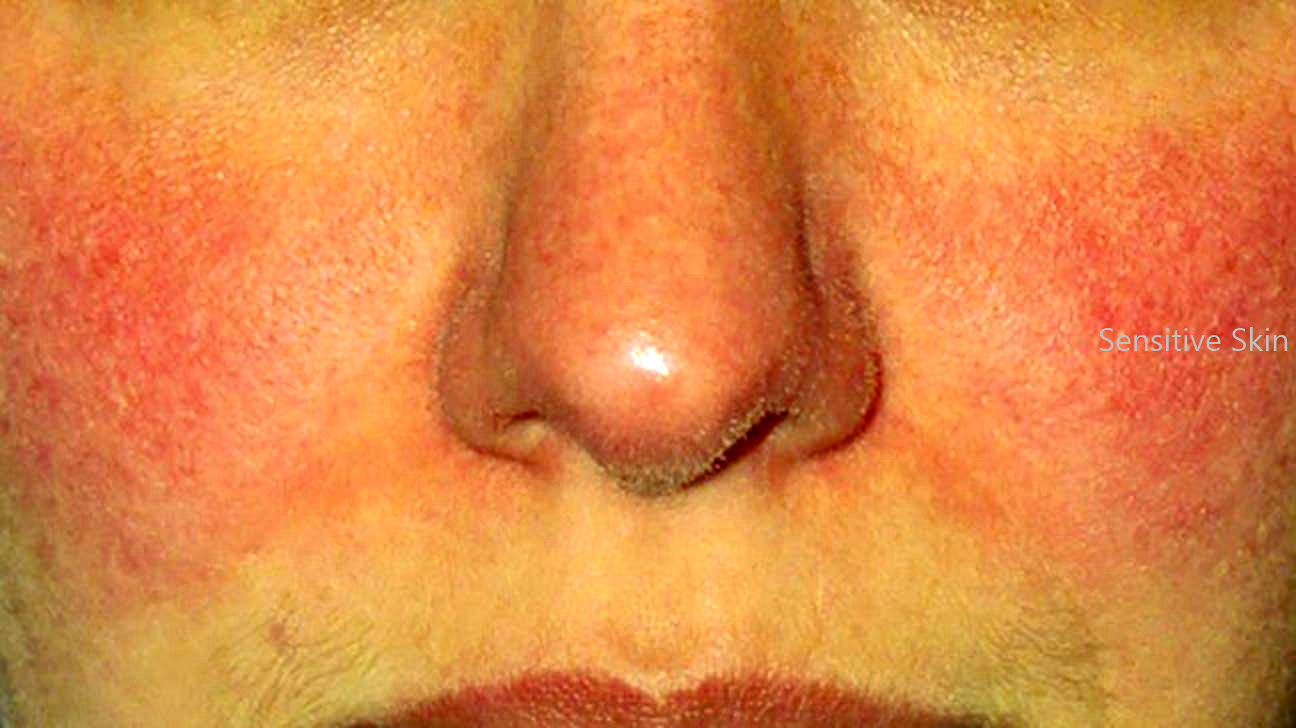
Sensitive Skin Care can be quite a challenge to manage, especially when you’re not sure what’s causing your skin to react. In this comprehensive guide, we delve into some of the most common questions about sensitive skin. Whether you’re dealing with sensitivity for the first time or have been struggling for years, this article will provide you with the insights you need to better understand and care for your skin.
What is Sensitive Skin?
Define and Characterize
Dermatologists define sensitive skin as reactive in 2025, although it is not a medical disorder. A weakened skin barrier typically leads to exaggerated responses to physical, chemical, or environmental stressors. Skin sensitive persons experience burning, stinging, or itching from items or weather that don’t affect most people.
Common Sensitive Skin Symptoms
Redness, dryness, tightness, and burning or itching are common symptoms of sensitive skin in 2025. With the rise of active skincare components and pollutants, more people are experiencing these symptoms after exposure to harsh weather, UV radiation, or cosmetics. Reactions might occur promptly or gradually, mimicking allergic reactions.
Sensitive Skin Causes
A recent study suggests that genetics, damaged skin microbiota, hormone imbalances, and external aggressors, including pollution and climate change, contribute to the development of sensitive skin. Sensitivity can also result from overusing exfoliants and retinoids in skincare. Effective management of this illness requires patch testing and awareness of ingredients to identify and reduce triggers.
How do I know if I have sensitive skin?
If certain items cause your skin to itch, feel tight, or burn, you may have sensitive skin. When exposed to harsh weather, chemicals, or scents, redness, dryness, and irritation are typical. New skincare products, environmental changes, and stress can irritate sensitive skin. Unlike other skin disorders, it can be unpleasant without apparent symptoms. Skin that regularly becomes irritated or unpleasant without a clear cause is sensitive. Dermatologists can identify your skin type and offer daily care and protection items.
What causes sensitive skin reactions?
Some things that can trigger a reaction in sensitive skin include skin problems or allergic reactions, such as eczema, rosacea, or allergic contact dermatitis. Skin that is too dry or damaged can no longer protect nerve endings, which can cause skin reactions. Exposure to excessive sun, wind, or extreme heat or cold can harm your skin. There isn’t as much research on how genetics, age, gender, and race affect skin sensitivity, but these variances may still cause skin sensitivities.
Are there medical tests for sensitive skin?
As of 2025, dermatologists can perform patch testing for allergic reactions to common irritants; however, sensitive skin tests are not yet available. This helps identify skin irritants. Since sensitive skin can be caused by genetic, environmental, and lifestyle factors, symptoms and patient history are used to diagnose it. Eczema and rosacea, which might mimic sensitivity, may be checked by doctors. Patch testing helps, but controlling sensitive skin usually entails identifying triggers, using gentle products, and following a skincare routine that minimizes irritation.
Should men be concerned about sensitive skin?
Yes, men should be concerned about sensitive skin, especially in 2025, as men’s skincare awareness continues to grow. Shaving, outdoor exposure, and harsh grooming products can cause irritation, redness, and dryness. Men generally dismiss early symptoms of sensitivity as minor difficulties. Ignoring symptoms might damage the skin over time.
Use fragrance-free and alcohol-free products, and moisturize regularly to minimize sensitivities. Avoid harsh exfoliation and cleanse gently, say dermatologists. All genders have sensitive skin, and taking it seriously improves skin health and resilience. Maintaining skin health requires regular, customized skincare.
How can I care for my sensitive skin
Cleansing
From one person to the next, sensitive skin responds differently to different cleansing methods. But most dermatologists agree that “deodorant” soap or highly fragranced soap contains strong detergents and shouldn’t be used on the face. Soap-free cleansers, such as mild cleansing bars and sensitive-skin bars, as well as most liquid facial cleansers, have less potential for facial skin irritation than soaps.
Moisturizing
Moisturizing products protect the skin from dryness, irritation, and environmental damage. An excellent moisturizer helps reinforce the skin barrier and enhances skin health, particularly for sensitive skin. Avoid items with alcohol, perfumes, and harsh chemicals.
Cosmetics
Be cautious when using cosmetics for sensitive skin. Choose dermatologically certified, hypoallergenic, fragrance-free cosmetics. Avoid items with heavy dyes or preservatives that cause allergies. Maintaining skin equilibrium requires thorough makeup removal and moisturization.
What should sensitive skin care products contain to reduce irritation?
What types of cosmetics are less irritating to sensitive skin?
Use face powder, which contains few preservatives and has a minimal risk of skin irritation. Use a silicone-based foundation for minimal skin irritation. Do not use waterproof cosmetics; you need a special cleanser to remove them. Use black eyeliner and mascara; they appear to be the least allergenic. Use pencil eyeliner and eyebrow fillers; liquid eyeliners may contain latex and may cause an allergic reaction. Throw out old cosmetics; they can spoil or become contaminated.
With an unfamiliar skin care product, how should I test it?
Patch tests are essential when trying new skincare products to avoid irritation or allergic reactions. Put a little product behind your ear or on your inner forearm. Without washing, leave it on for 24–48 hours. Look for redness, itching, burning, or swelling. You can apply it to your face or body if no reaction occurs. Never test numerous new products at once, and check the ingredient list for skin irritants.
What are some tips for protecting skin in both winter and summer?
First, wear sunscreen year-round. Use a broad-spectrum sunscreen with a sun protection factor (SPF) of at least 30, and apply it every day when you will be in the sun for longer than 20 minutes. Remember, the sun’s skin-damaging UVB rays are strongest between 10 a.m. and 4 p.m. Avoid going out in the sun during these hours whenever possible, regardless of the time of year.
In winter
Don’t overheat your home. Take cool or lukewarm baths and showers — and fewer of them — and use a soap-free cleanser. Minimize skin dryness after bathing: Gently pat your skin dry and apply moisturizer while your skin is still moist. Use a moisturizer containing petrolatum, mineral oil, linoleic acid, ceramides, dimethicone, or glycerin.
In summer
If you do go out, wear a wide-brimmed hat, sunglasses, and clothing that is tightly woven and covers your arms and legs. Apply your sunscreen 15 to 30 minutes before going out, and reapply it every 80 minutes, after swimming, or if you’ve been perspiring heavily.
Conclusion
Understanding and managing sensitive skin can seem like a daunting task, but with the right knowledge and tools, it’s entirely possible. By being mindful of your triggers, using gentle products, and consulting with professionals when necessary, you can maintain calm and healthy skin.
FAQs
1. What are the signs of sensitive skin?
Sensitive skin often feels tight, itchy, or burns when exposed to products, weather, or stress. Redness, dryness, and stinging are also common symptoms.
2. What causes sensitive skin to react?
Triggers include harsh weather, pollutants, strong skincare ingredients, and underlying skin conditions like eczema or rosacea.
3. Can men have sensitive skin too?
Yes, especially due to shaving and harsh grooming products. Men should follow gentle routines to prevent long-term skin damage.
4. How do I safely test a new skincare product?
Apply a small amount behind your ear or on your forearm for 24–48 hours. If no irritation occurs, it’s likely safe to use.
5. What ingredients should I look for in sensitive skincare?
Opt for products with hyaluronic acid, ceramides, and aloe vera. Avoid fragrances, alcohol, and harsh preservatives.



